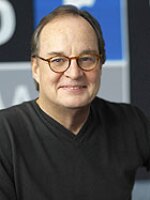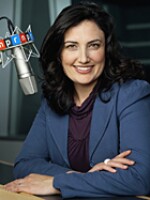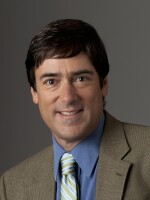ALEX CHADWICK, host:
Now to global warming. Scientists and government officials from around the world say today, in Paris, there's at least a 90 percent chance the climate is changing because of human activities. Global warming is likely to speed up and to persist for centuries.
MADELEINE BRAND, host:
These are the major conclusions of a review board called the Intergovernmental Panel on Climate Change. The group unveiled its latest report today in Paris. And joining us to talk about it is NPR's science correspondent Richard Harris.
Hi, Richard.
RICHARD HARRIS: Hi, Madeleine.
BRAND: All right. So according to this report, what's it going to look like for us at the end of the century?
HARRIS: Well, it kind of depends whether we take any action or not. But presuming that we don't take dramatic action, it's going to be a lot hotter, no big surprise, four or five degrees Fahrenheit. More at the poles, less near the equator. It's hard to imagine that much more heat. But - it doesn't sound that much but it's actually pretty dramatic around the globe. Sea level is supposed to go up a foot or two, perhaps. It's already gone up about seven inches since - in the last hundred years or so.
And big shifts in rainfall. We talk about global warming. But actually, there are lots of other shifts in the global climate system. Less rain near the equator, probably. Probably more rain farther away from the equator, and more droughts, more strong hurricanes; you know, it's the litany of global warming we've been hearing about for sure.
CHADWICK: Richard, you follow this subject very closely for the science desk at NPR. Any surprises for you in this report?
HARRIS: No. Actually, Alex, there aren't - and actually that's a good thing. Because let's remember a second what this review process is. It actually started back in the 1980s as part of the international effort to sort of get together and create some sort of framework for dealing with global warming. And these guys have been coming back and back and back. This is actually the fourth report they have issued looking at the signs behind global marking. And each time the report gets more and more certain and more and more strong of saying that yes, this is real, this is happening, and we're more and more confident in our forecast and so on. So that's the way this process is supposed to be working. And so we should actually be alarmed if there were big surprises in this.
BRAND: Well, Richard, that's the science. Now to the politics. Will this report have any impact on the governments or industry who are in charge of changing our ways?
HARRIS: It's an interesting question. It's hard to suss it out. Because if you ask people directly, most people don't argue that the science is uncertain. They don't say I'm not doing anything about global warming because I don't believe the science. They argue that they're concerned about how much it will cost to do something about it, or you know, some of the political considerations and so on.
So on the surface of it, it wouldn't appear to make a difference that a science report comes out and says no, now we're really, really, really sure as opposed to just really, really sure. But you know what, we are starting to see a shift in the public right now, both in businesses and from states and so on, who are saying it is time to act. Less so the federal government. But people are saying this is real. Let's try to do something about it. And a report like this can only help but sort of contribute to the momentum of trying to do something about that. And I think that's sort of what we're starting to see here or could be starting to see. Ask me in six months.
And as a matter of fact, this isn't the last word even from this round of these climate reports. Later this spring there will be two more companions to this one. This one deals specifically with the science. The next one will come out and talk about what the impacts will be of this. And finally, there'll be a third one talking about what we can do to mitigate climate change. And I think, you know, there could be some very useful things in that one as well.
BRAND: Okay. NPR's science correspondent, Richard Harris, thank you.
HARRIS: My pleasure. Transcript provided by NPR, Copyright NPR.









